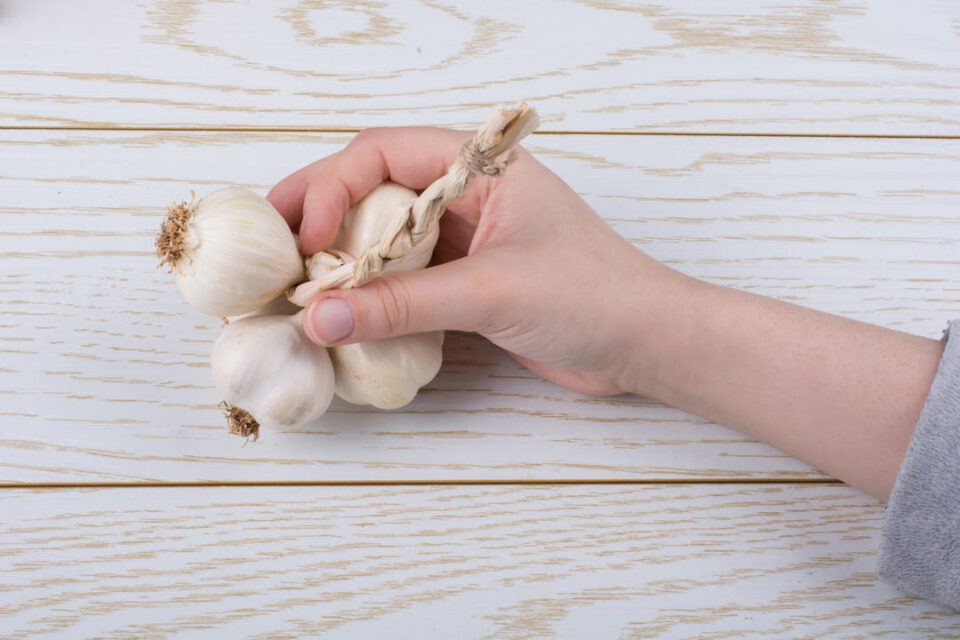Kusuma arrived at my clinic one gloomy evening, her face etched with worry. As her physician, I had been monitoring her health closely, and recent mercury readings had unveiled an alarming spike in her blood pressure levels. The ticking time bomb of hypertension had caught up with her, and Kusuma was desperate for a solution. It was this pivotal moment that led me to explore the remarkable potential of garlic in combating high blood pressure.
The Healing Power of Garlic: A Case Study
“Doctor, is there a natural way to bring my blood pressure under control?” Kusuma inquired.
Kusuma’s question ignited a journey into the world of garlic, a culinary staple and a medicinal marvel in India for centuries. High blood pressure, also known as hypertension, is a silent but potent adversary. It can lead to severe health complications, including heart disease, stroke, and kidney problems. Conventional medications often come with their own set of side effects, leaving many searching for alternative solutions.
As I delved into my research, I uncovered compelling evidence of garlic’s ability to lower blood pressure. In one pivotal study conducted at the All India Institute of Medical Sciences, researchers found that garlic extract exhibited antihypertensive properties by relaxing blood vessels and reducing pressure within them. These findings offered a glimmer of hope for patients like Kusuma who yearned for a natural remedy.
The Secrets of Garlic
Garlic, known scientifically as Allium sativum, is no ordinary kitchen ingredient. It is a bulbous wonder, packed with potent compounds such as allicin, ajoene, and diallyl trisulfide. These substances contribute to garlic’s remarkable ability to lower blood pressure. Here’s how they work.
1. Allicin: The Blood Pressure Warrior
Allicin is the star player in garlic, responsible for its pungent aroma and therapeutic properties. When garlic is crushed or chopped, an enzyme called alliinase converts alliin into allicin. This compound has been shown to relax blood vessels, making it easier for blood to flow and reducing the pressure on arterial walls.
2. Ajoene: The Platelet Whisperer
Ajoene is another powerful compound in garlic. It possesses antiplatelet properties, which means it helps prevent the clumping together of platelets in the blood. This action reduces the risk of blood clot formation, which can be a major contributor to high blood pressure.
3. Diallyl Trisulfide: The Blood Vessel Relaxer
Diallyl trisulfide, found in garlic oil, plays a crucial role in promoting vascular health. It helps in the production of hydrogen sulfide (H2S) gas, which, in turn, relaxes blood vessels and promotes smooth blood flow.
All About Using Garlic to Lower High Blood Pressure
1: How much garlic should I consume daily to lower my blood pressure?
The recommended dosage is typically one to four cloves per day, depending on individual tolerance. You can consume it raw, cooked, or as a supplement.
2: Can I take garlic supplements instead of fresh garlic for blood pressure control?
Yes, garlic supplements, such as garlic capsules or tablets, can be effective. Ensure they contain allicin or standardized garlic extract.
3: Are there any side effects of consuming garlic for blood pressure management?
Garlic is generally safe, but some people may experience digestive issues or allergic reactions. It’s best to consult with a healthcare professional.
4: How long does it take for garlic to lower blood pressure significantly?
Results may vary, but some individuals experience a noticeable reduction in blood pressure within a few weeks of regular garlic consumption.
5: Can garlic replace my prescribed blood pressure medication?
Garlic can be a complementary therapy, but it should not replace prescribed medications without consulting your healthcare provider.
6: Are there any contraindications for using garlic with certain medications?
Garlic may interact with blood-thinning medications, so consult your doctor if you are on such medication.
7: Can garlic be used to prevent high blood pressure in the first place?
Incorporating garlic into a balanced diet may help prevent high blood pressure, but it’s not a guarantee.
8: What are some delicious ways to include garlic in my meals?
Garlic can be added to soups, stews, stir-fries, and even salad dressings for a flavorful twist.
9: Can garlic help lower cholesterol levels as well?
Yes, garlic has been shown to have a modest effect on reducing LDL (bad) cholesterol levels.
10: Is there a specific time of day to consume garlic for optimal blood pressure control?
There’s no specific time, but consistency in consumption is key.
Conclusion: A Prescription from Nature
In my journey to help Kusuma and countless others like her, I’ve witnessed the incredible potential of garlic in the fight against high blood pressure. It is nature’s prescription, a culinary delight with the power to heal. With its arsenal of allicin, ajoene, and diallyl trisulfide, garlic emerges as a formidable ally in our quest for a healthier heart.
So, whether you choose to savor its flavor in your favorite dishes or opt for supplements, remember that garlic, when used judiciously and consistently, can be a valuable addition to your hypertension management plan. It’s not a miracle cure, but rather a potent tool in our arsenal against the silent killer that is high blood pressure.
Disclaimer
The information provided in this blog post, “How to Use Garlic to Lower High Blood Pressure,” is intended for general informational purposes only. The author, Dr. Brahmanand Nayak, is a medical professional, but this blog does not constitute medical advice, diagnosis, or treatment. It is essential to consult with a qualified healthcare provider before making any decisions related to your health, particularly if you have an existing medical condition or are taking medication. The author and the publisher of this blog disclaim any responsibility for any loss, injury, or damage resulting from the use of the information provided herein. It is essential to use caution and consult with a doctor to ensure that any dietary changes or treatments are appropriate for your individual health circumstances.

